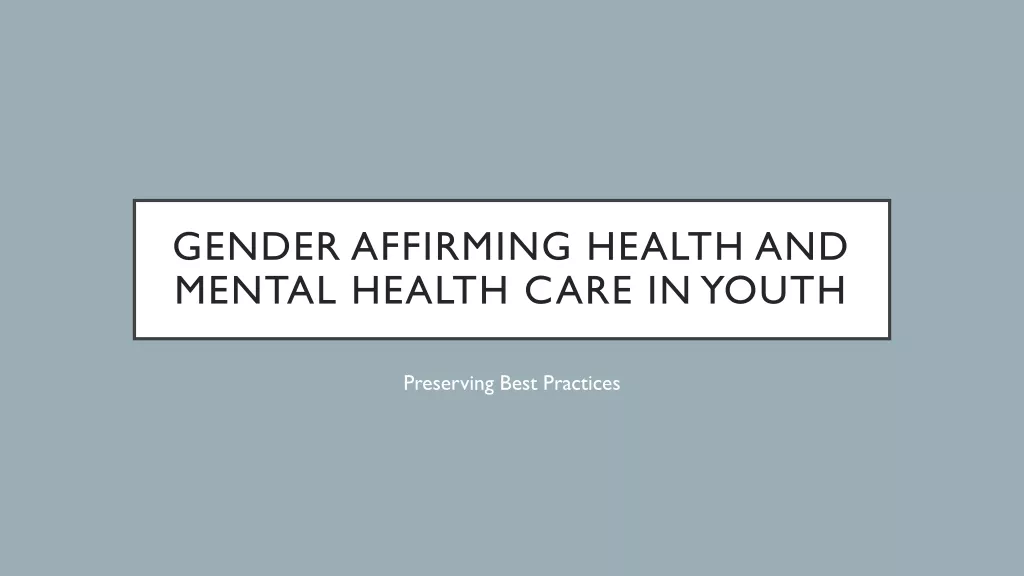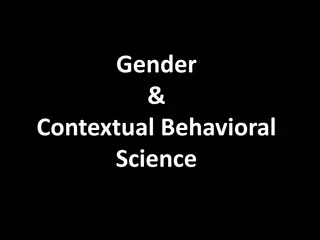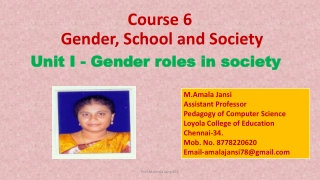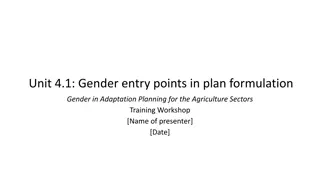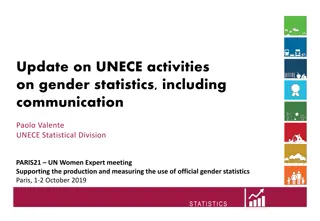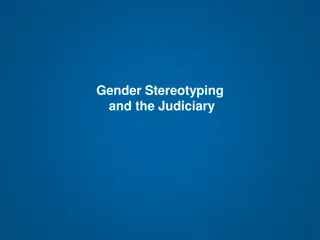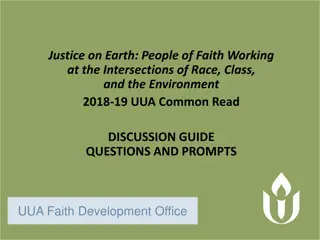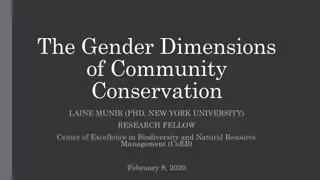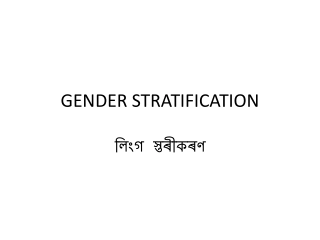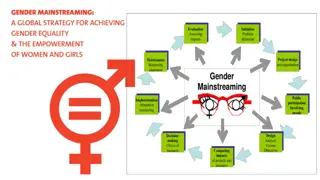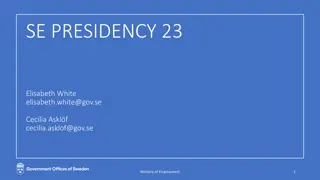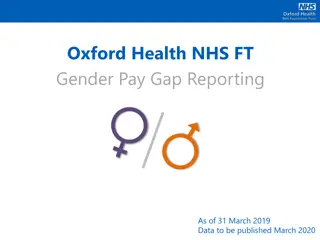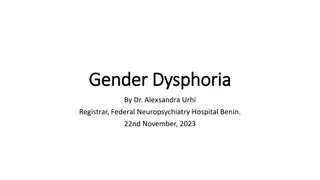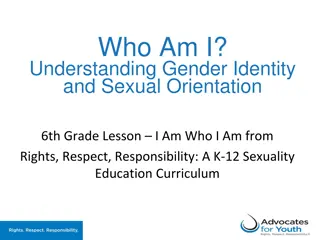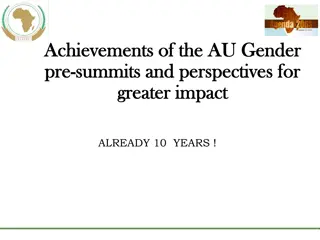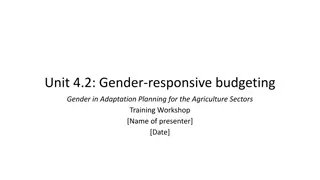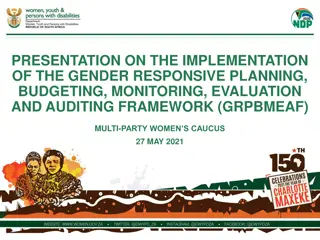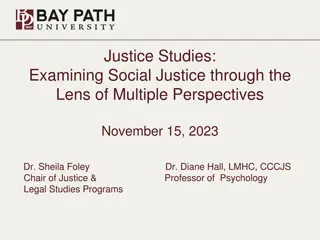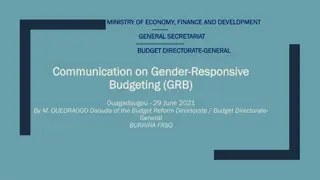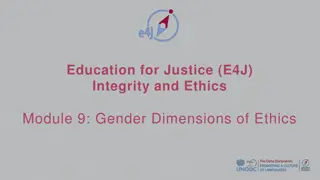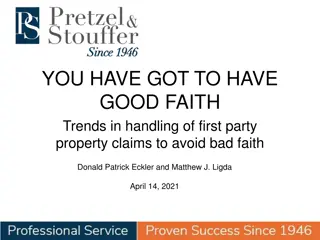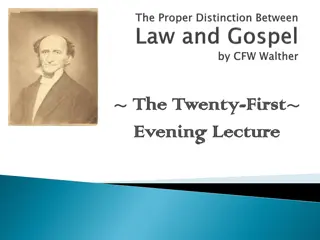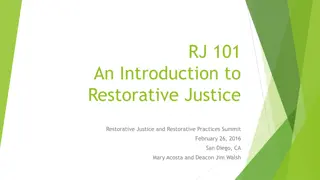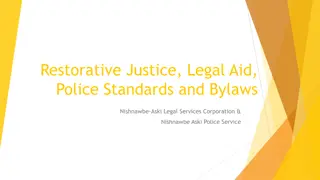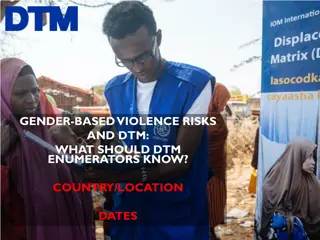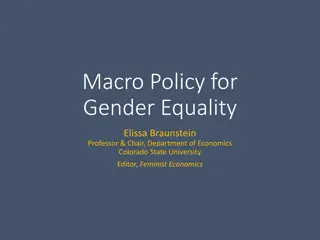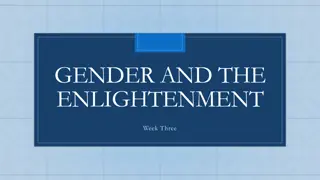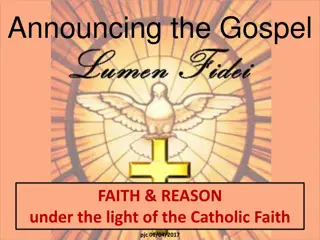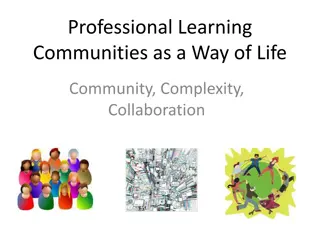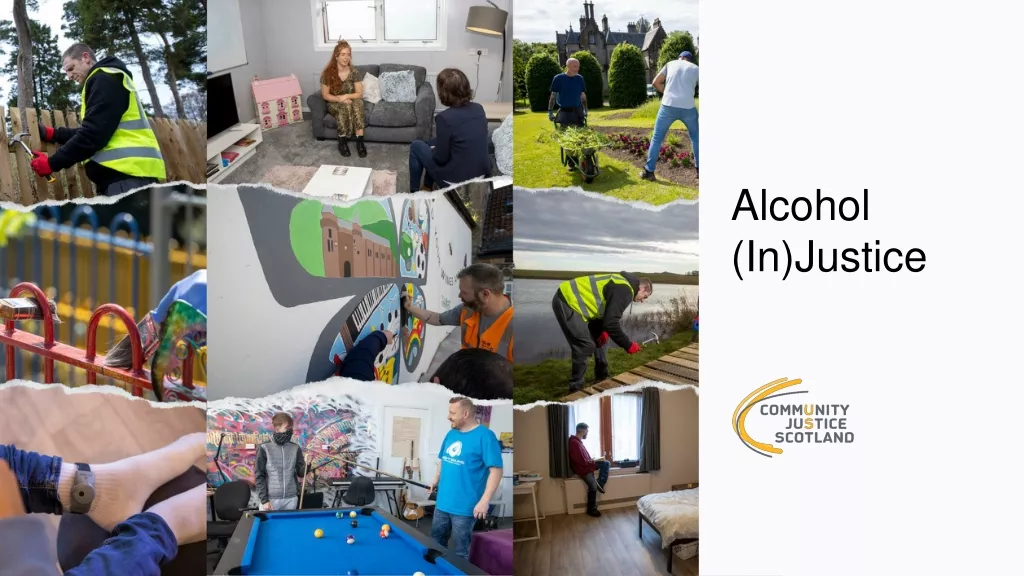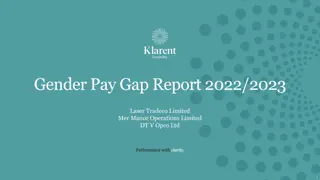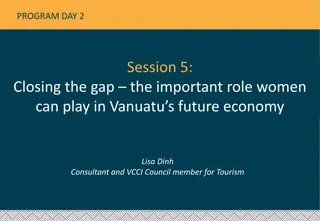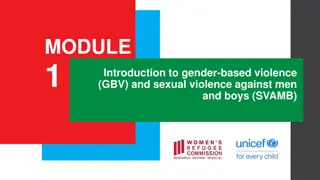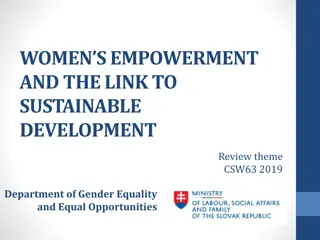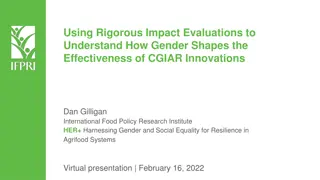Exploring Gender Justice in Faith Communities
This content delves into the topic of gender justice within the Catholic Church, presenting different perspectives and challenging traditional views on women's roles. It discusses the notion of being gendered as a gift rather than a danger, emphasizing equality and unity in Christ. Barriers to addressing gender justice within faith communities are identified, along with strategies to mobilize faith actors for positive change.
Download Presentation

Please find below an Image/Link to download the presentation.
The content on the website is provided AS IS for your information and personal use only. It may not be sold, licensed, or shared on other websites without obtaining consent from the author. Download presentation by click this link. If you encounter any issues during the download, it is possible that the publisher has removed the file from their server.
E N D
Presentation Transcript
www.cafod.org.uk Gender Justice and the Catholic Church www.cafod.org.uk
The sound of silence 1 Corinthians 14: 34-36 As in all the churches of the saints, women should be silent in the churches. For they are not permitted to speak, but should be subordinate, as the law also says. If there is anything they desire to know, let them ask their husbands at home. For it is shameful for a woman to speak in church. 2
Is there a different theology? What would it ..mean to experience our being gendered as gift rather than danger, a source of life and hope rather than of oppression or fear? . - Of the same flesh: a theology of gender. Christian Aid 2014
A radical, alternative faith.. So God created humankind in his image, in the image of God he created them; male and female he created them. - Genesis 1: 26-27
A different reality There is no longer Jew or Greek, there is no longer slave or free, there is no longer male and female; for all of you are one in Christ. - Galatians 3:28
A vision Ivone Gebara Catholic nun from Brazil Men and women will dwell in their houses; men and women will eat the same bread, drink the same wine, and dance together in the brightly lit square, celebrating the bonds of all humanity.
What are the barriers preventing faith actors addressing gender justice? I don t want to address gender justice Entrenched patronage and powerful vested interests Poor faith-state relations. FBO s seen as part of the problem Lack of organisational incentives I don t have to address gender justice Fear of ostracism, don t see the benefits Lack of personal knowledge and skills Autocratic or technocratic attitude Lack of appropriate methodologies, I can t address gender justice Lack of sanctions Lack of committed leadership Lack of confidence in faith institutions capacity Lack of public pressure and lay person engagement (due to disempowerment, Disabling theology 7 fear or apathy)
How can we mobilise faith actors to do more? Political Want (I want to address gender justice!) Nurture constructive faith institution relationships & mutual respect e.g. immersions for faith leaders Build on moral and political self-interests e.g. theology for gender justice Political Can (I can address Gender Justice!) Political Must (I must address Gender Justice!) Empower and mobilise people of faith (pressure from below) e.g. faith marches for gender justice Influence top leadership (pressure from above) e.g. national faith consultations Capacity development e.g. mainstream gender to theological colleges, Gender Model Families type approaches 8
The Gender and Dignity Tool: Workbook format with illustrations, exercises and resources 5 sections: Introduction Purpose, Concepts and Values Chapter 1: The Individual Chapter 2: The Family Chapter 3: The Community Chapter 4: The Society
Concepts and values Catholic values and traditions Key Catholic documents e.g. Africae Munus, Pope Paul letters Biblical references to women (New Testament)
Gender Justice Interventions What works at the Individual Level What works at the Family Level What works at the Community Level What works at the Society Level Using partner examples, scriptures and theological reflections
Methodology: The pastoral cycle SEE JUDGE ACT CELEBRATE
Key questions: Is such a tool useful? For what purpose? Is there anything missing? Any suggestions? Any key theological documents from your regions that need to be considered? Please send any feedback to Tanja Haque (thaque@cafod.org.uk) and Thank you!




